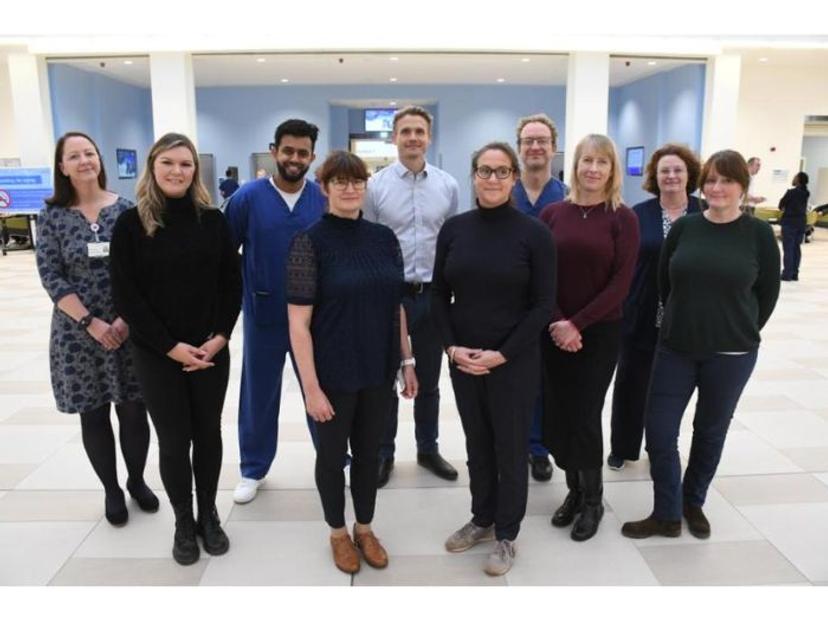PlaqueTec recruits first ten patients in BIOPATTERN trial
Unique PlaqueTec liquid biopsy system will be used to collect blood samples containing biomolecules localising at or being released by coronary plaque
30 Nov 2023
PlaqueTec, a company identifying endotype-specific biomarkers to advance precision medicine for coronary artery disease (CAD), today announced that it has received the UK’s Medicines and Healthcare products Regulatory Agency (MHRA) approval to continue its BIOPATTERN trial1 following recruitment of the first ten patients with CAD. The trial has been designed to improve understanding of the pathobiology of atherosclerotic cardiovascular diseases (ACVD) and how it varies between individuals, to aid the development of novel therapies and treatment approaches.
The BIOPATTERN trial will use PlaqueTec’s proprietary blood sampling device, the Liquid Biopsy System™ (LBS), to collect samples at multiple sites along a patient’s diseased coronary artery. Thousands of proteins and other blood molecules will be measured in each sample, enabling the assessment of trans-plaque gradients between samples. These data will be analysed and used to generate a more detailed picture of the disease and enhance clinicians' understanding of which proteins and biomolecules play key roles in CAD progression towards heart attack.
The trial aims to recruit 300 patients with established CAD who have been scheduled for coronary angiography. Patients will be recruited across eight UK NHS specialist cardiac centres, with four sites now open, including the lead site: the Royal Papworth Hospital in Cambridge, UK, where Chief Investigator, Dr. Stephen Hoole is an interventional cardiologist, and Norfolk and Norwich University Hospital, Royal Bournemouth Hospital, and the Bristol Heart Institute. The trial is managed by Papworth Trials Unit Collaboration in collaboration with PlaqueTec, and is overseen by a Trial Steering Committee chaired by Professor Peter Libby (Mallinckrodt Professor of Medicine, Harvard Medical School and President of the International Atherosclerosis Society).
The BIOPATTERN trial will establish the safety and functionality of the LBS device and confirm trans-plaque protein signals seen in earlier pilot studies. PlaqueTec then aims to use the data collected to generate a new data platform based on novel site-of-disease insights to enable the stratification of patients with distinct disease endotypes and the development of precision medicine approaches to improve treatment outcomes for patients with CAD.
“A population approach to managing cardiovascular risk is generally used at present to treat CAD patients and prevent progression to heart attack, whereas a more tailored, precision medicine approach that accounts for each patient’s individual disease profile and health needs has exciting potential benefits. By better targeting of new therapies to those patients at highest risk and who most need them, we hope to efficiently stabilise their disease and improve outcomes,” said Dr Stephen Hoole, Consultant Cardiologist, Royal Papworth Hospital. “The BIOPATTERN trial provides a novel opportunity to use the LBS device to help us better understand and characterise CAD on an individual patient level and potentially enable better patient care by identifying novel precision medicine targeted treatments to improve the outcome of patients with CAD in the future.”
The PlaqueTec LBS has been successfully validated in first-in-human and proof-of-concept trials2.
References:
To find out more about the BIOPATTERN trial, visit www.plaquetec.com
West, N.E.J. et al. (2017) ‘Percutaneous sampling of local biomolecule gradients across coronary artery atherosclerotic plaques’, JACC: Basic to Translational Science, 2(6), pp. 646–654: doi:10.1016/j.jacbts.2017.07.007
